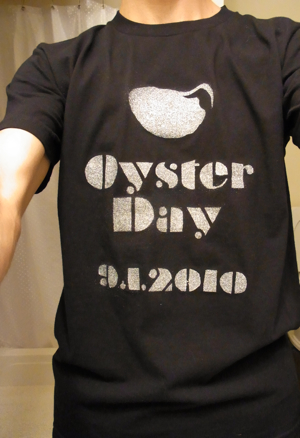With the goal of stirring up even more interest in Murakami between now and mid-October, when the Nobel Prizes are announced, I will post a small piece of Murakami translation once a week from now until the announcement. You can see the other entries in this series here: 1, 2.
It’s hard to pick the other passages to share – the story is long, and there are a number of parts that differ from Hard-boiled Wonderland. I think getting to the end is important, though, so I’ll fast forward through the central part of the tale, which unfolds mostly as it does in the novel – boku maps out the Wall a little, explores the dreams at the Library, starts a relationship with kimi (very different from the novel), meets up with his shadow which has begun to weaken, and realizes that he must help his shadow escape from the Town.
Before he does, he takes kimi into the archives of the Library and illuminates all the dreams. In the novel, this was to unravel the Librarian’s mind from all of the dreams. In “The Town and Its Uncertain Wall,” there’s a markedly different result:
All of the old dreams are awake.
“There’s no way, how can this…” you say in a daze. Yes, exactly. The old dreams have had all of their existence torn away from them. Words torn from their voices, light torn from their eyes, and dreams torn from their sleep.
“There’s no way.”
Or maybe we’re both seeing the same illusion in the deep darkness of the archives. But even if this is an illusion, it’s an illusion that the old dreams in the room have mustered their last bit of strength to unfurl for us.
I go with them down into a deep, hole that’s been dug in the ground. It’s a place where everything is ruined and everything is lost. The river has dried up, the hill has crumbled, and the light has stopped. The road I follow is surrounded on both sides by steep cliffs filled at the bottom with heavy water that gives off a rotten smell. There are no stars nor moon, and only a slight amount of dust-like light spills out from within the earth, causing the outlines of the surrounding scenery to just barely float up.
The thousands of old dreams stand in front of me and guide me through the surroundings. I walk slowly so as not to miss a step on the sheer road. I can see endless rows of troops marching in the opposite direction as me on a road on the opposite shore of a lake. They have no heads on their shoulders. They occasionally expel white breath from a gaping, black hole in the middle of their shoulders like they are breathing.
The old dreams continue on the straight road. As they proceed, the seasons change, years pass. Only the darkness remains the same. Several of the soldiers call out to me. They call out with gurgling sounds from the holes in their bodies.
I am all alone. I’ve lost sight of you. I yell out your name as I walk, but there is no reply. The only response is the mocking gurgling sound from the soldiers. The old dreams continue.
“Wait for me,” I yell. “I have to wait for her.”
The old dreams don’t answer and just continue their endless flashing. I can’t stop either. This is not my place. This is their country. My feet, heedless of my will, continue after the old dreams. All sorts of rubbish lines the side of the road. I recognize all of it. Several dozen dead cats with their fur all rigid staring into the void. Broken, faded toys buried in dried mud with their arms pointing up into the air. Old sports shirts that have had cigarette marks burned into them hanging from the branches of trees.
Time passes as I continue on the road. My eyes hollow, my hair falls out, and my teeth rot. Deep wrinkles appear all over my skin, and I have to convulse my entire body to take even one breath.
“Stop,” I yell. “Please, enough. Stop!”
But the old dreams still continue. Suddenly the road ends. When I realize it, I am standing on a deserted rocky scrag. No longer is there any water or soldiers in the area around me. It’s almost like I’m standing at the bottom of a deep well. The ceiling is infinitely high, and far above in that darkness overhead is a small white hole the size of a pinprick. It is the light of the sun.
Nothing in the world is as amazing as the light from the sun. Don’t you think?
Indeed, colonel. Indeed.
Tears spill from my eyes. The tears turn to salt crystals and fall to the ground, collecting on the scrag. At that point the old dreams lose their light one after another like they’ve burnt up. When they lose their light, they fall to the ground quietly like a feather. And when the last bit of light is sucked away into the air, the area is covered by a pitch black darkness. The white light in the ceiling is already gone. And everything ends.
I’m not exactly sure what this momentary transportation means. Perhaps that dreams, and the mind, continue on heedless of the casualties it leaves behind, even oneself. Murakami cut the passage for the novel. No need to worry – in next week’s installment, both boku and kimi survive the illusion and retreat to the banks of the river to talk.




